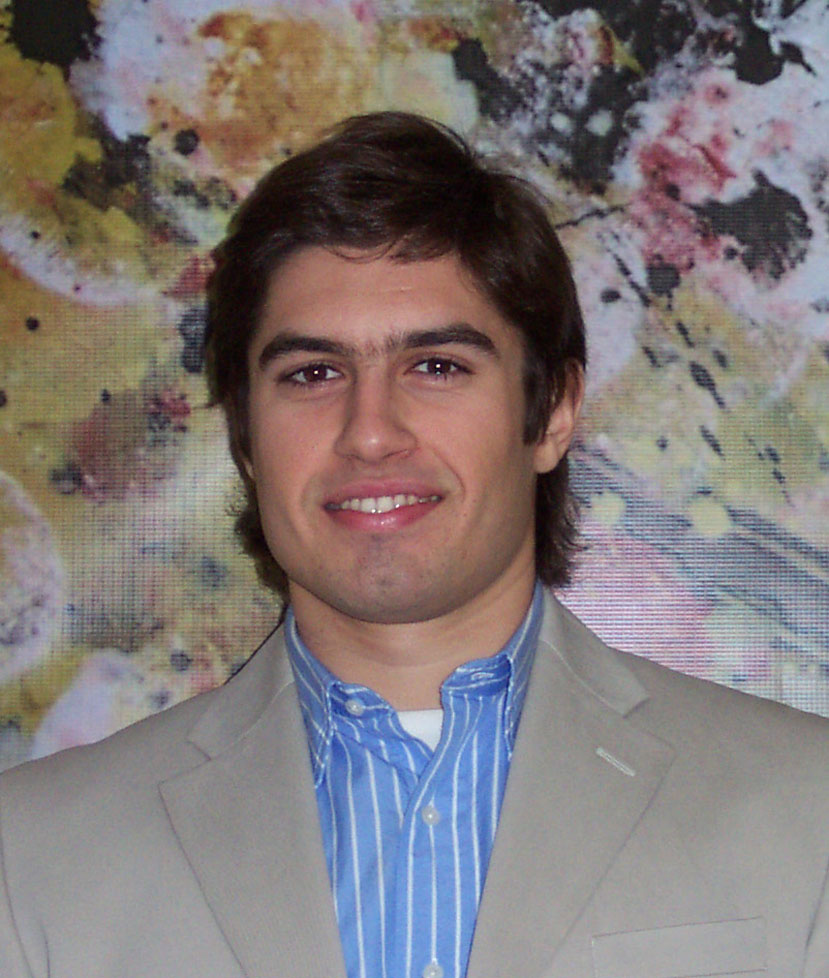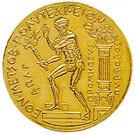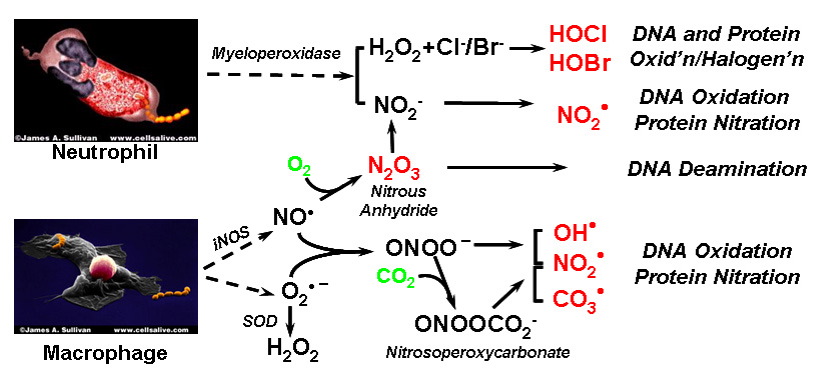
Department of Chemical Engineering
Room NE47-297 (Tech Square 500)
Massachusetts Institute of Technology
Cambridge, MA 02139-4307 USA
Telephone (617) 258-8269
Email: vdendrou@mit.edu

N.T.U.A.
Vasileios Dendroulakis
Graduate Research Assistant
Diploma of Chemical Engineering,
National Technical University of Athens,
2004
Research Interests
Nucleotides as Biomarkers for Chronic Inflammation and Cancer
The process of inflammation, a response of the immune system to invading pathogens, involves the secretion of reactive chemical species from phagocytes that contribute to the elimination of infectious agents. These inflammatory chemical mediators are also prone to attack the surrounding host tissue and have been linked to cellular protein and nucleic acid damage resulting in mutations, the first steps towards the emergence of cancer. Of these species, nitric oxide (NO·) is one of the most studied and important biological molecules and is produced at high rates by activated macrophages. Macrophage-derived NO· diffuses into host tissues and reacts with oxygen and superoxide to generate the highly reactive species of nitrous anhydride (N2O3) and peroxynitrite (ONOO-), respectively. Specifically, N2O3 is itself a powerful nitrosating agent and is the inflammatory mediator mainly responsible for in vivo loss of exocyclic amine groups from molecules of DNA bases, also termed as nucleobase deamination.
There is ample evidence in the literature that nucleobase deamination occurs when either deoxynucleosides, oligonucleotides or DNA plasmids are exposed to NO· and O2 under in vitro conditions that simulate sites of chronic inflammation in humans. However, recent attempts to quantify these damaged nucleobases in the genome of mammalian cells exposed to the same physiological concentrations of NO· and O2 associated with inflammation revealed limited changes in the steady-state levels of DNA and RNA deamination products. To address this problem, I propose to shift the focus from genomic DNA damage to the pool of DNA and RNA building blocks, the metabolic pool of nucleosides and nucleotides, as a potential target for nitrosative deamination by chemical mediators of inflammation. The hypothesis driving these studies is that the greater solvent exposure of free nucleosides and nucleotides, and their broader distribution in the cellular milieu, will lead to significantly higher level of reactivity of the base moiety with chemical mediators of inflammation, thus serving as potentially more efficient biomarkers for exposure of cells to inflammatory conditions.
I am testing this hypothesis by developing novel analytical methods and kinetic models of the behavior of the nucleotide pool. The analytical methods, aiming towards the quantification of nucleotides undergoing N2O3-mediated deamination either in solution or in cell extracts, will be used for the kinetic analysis of in vitro deamination of pure nucleotides exposed to biologically relevant steady-state concentrations of N2O3 in a novel NO·/O2-delivery system (recently developed and characterized by the Deen Group). Using the same quantification and exposure tools, I will then monitor the kinetics of N2O3-mediated deamination of nucleotides in E. coli and human TK6 lymphoblastoid cells. These in vitro and in vivo experimental results will eventually be combined to provide an estimate for the apparent N2O3 concentration that nucleotides are exposed to in the cell cytosol under inflammatory conditions, elucidating potential links between nitrosative deamination and progression of cancer.
Personal Interests
My personal interest towards the complex yet fascinating processes governing the cell was what drew me to this project. The research involved with this topic -combining chemistry, biology, modeling, engineering and analytical instrumentation- allows for a more global graduate education experience and reflects the need of modern science to employ different disciplines and fields of expertise in order to answer the more challenging questions that arise from the study of life. Outside the lab, I enjoy practicing martial arts through several MIT clubs, learning to snowboard on New England's slopes and mainstream dancing; I also like Mediterranean cooking, watching movies, listening to music, and keeping in touch with my greek heritage by volunteering with the Hellenic Students' Association at MIT.
